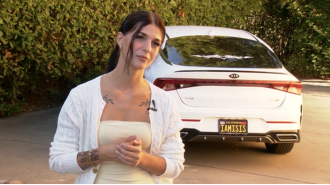Joe Bryan in His Own Words: On Being Convicted With Expert Testimony That Turned Out to Be Wrong
In a moving interview, Bryan, who has spent 31 years in a Texas prison for the 1985 murder of his wife, talks about his life behind bars and trying keep hope alive.
This summer and fall, as Joe Bryan’s attorneys argued that he deserved a new trial, Bryan watched in silence. Although he was at the center of the evidentiary hearing in Comanche, Texas, he was never afforded a chance to speak. Dressed in a black-and-white-striped jail jumpsuit, he sat beside his defense attorneys, listening intently to each witness, a finger usually pressed to his temple in concentration. I often wondered what he was thinking.
Bryan has twice been convicted of the 1985 murder of his wife, Mickey, an elementary school teacher, in their Clifton, Texas, home. Bryan, then a beloved high school principal, had been attending an education conference in Austin, 120 miles away, in the days surrounding the murder. He has always maintained that he was asleep in his hotel room at the time of the crime. At the hearing in Comanche, compelling evidence was presented that the forensic testimony used to convict him was erroneous.
“My conclusions were wrong,” retired police Detective Robert Thorman, who performed the bloodstain-pattern analysis in the case, wrote in a sworn affidavit submitted to the court. “Some of the techniques and methodology were incorrect. Therefore, some of my testimony was not correct.”
It was a startling admission coming 31 years into Bryan’s prison sentence. Curious what he made of all this, I asked him if he would be willing to talk — about Mickey; about his odyssey through the criminal justice system; and about his decades behind bars. He agreed, and ProPublica video journalist Katie Campbell and I went to the prison in Huntsville, Texas, known as the Walls Unit, to interview him on camera. We had a strict time limit, so we stuck to broad themes, rather than exploring the many intricacies of his case. The resulting video provides a moving view of a man who has somehow retained grace, forgiveness and, most of all, hope, even after his world turned its back on him.
Not long after our interview, Bryan’s case suffered a major setback. Judge Doug Shaver — who oversaw the hearing — recommended that Bryan’s conviction stand, and that he not be granted a new trial. Shaver did not explain his reasoning; rather than write an opinion, he adopted the prosecutors’ 63 pages of conclusions about the hearing in their entirety, even a confounding argument that the erroneous bloodstain-pattern testimony was not important to the case.
Bryan’s plea for a new trial now goes before the Texas Court of Criminal Appeals, whose justices will be the final arbiters. They may take as long as they like to consider the case, a fact that does not work in Bryan’s favor. Bryan is 78 years old and suffers from congestive heart failure.
Three days after Shaver’s decision, Bryan’s older brother, James, and Bryan’s attorney, Jessica Freud, drove to Huntsville to break the news to him. “Needless to say, Joe was totally devastated,” James told me.
For nearly half of the two-hour visit, Joe was unable to speak, except to tell his two visitors through tears that they did not have to stay. They remained with him, sitting on the other side of the glass divider in anguished silence.
“Before we left, I told him that I understood,” James said. “But I knew I couldn’t really understand, because I was on one side of the glass and he was on the other.”






